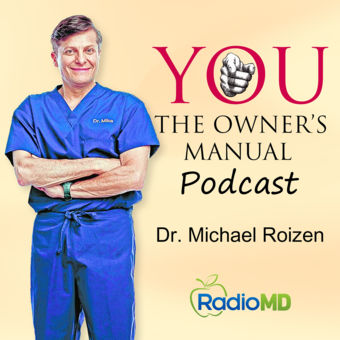
YOU The Owners Manual Radio Show
RadioMD The #1 Source for Health Podcasts
Dr. Michael Roizen is the Chief Wellness Officer at the prestigious Cleveland Clinic and is host of YOU The Owner’s Manual Podcast. Dr. Roizen co-founded RealAge, a service providing personal health tools to consumers and is author of the award-winning series of “RealAge” books. Dr. Roizen also co-authored, with Dr. Mehmet Oz, YOU: The Owner’s Manual series of bestselling books. Each week Dr. Roizen brings you medical news of the week, everyday health tips and informative interviews with the nation’s leading health practitioners.
- EP 1,188B - ALL IN HER HEAD: The Truth and Lies Early Medicine Taught us About Women’s Bodies and Why It Matters Today

Much of what we know about women’s bodies and health has come from men. Their points of view have helped shape the way we feel about our bodies—and the kind of medical attention we receive. Our “normal” bodily functions—as well as our pain, pleasure, strength, and intellectual capacity—have been based on an overwhelmingly male narrative uninformed by women’s own voices, and often used to shame and subjugate us. The result is a cultural and societal legacy that continues to shape our health and care, despite recent advances that challenge it. In ALL IN HER HEAD: The Truth and Lies Early Medicine Taught Us About Women's Bodies and Why It Matters Today (Harper Wave; on-sale February 13; ISBN: 9780063293014; 448 pages), medical historian and Memorial Sloan Kettering oncologist Elizabeth Comen, M.D. unpacks this legacy and reframes the conversation to empower women.
Comen shines a light on the female medicalized body and illuminates the myths and blind spots we’ve unwittingly inherited through generations. She takes readers back in time to meet the legendary—and sometimes infamous—doctors who shaped the field of medicine, as well as the patients they cared for (or in some cases, didn’t.) Comen explores the sanitariums of 18th century Europe, the anatomy labs of Victorian New York City, the makeshift hospitals of the Antebellum South. She connects the dots to show how a legacy of ignorance, indifference, oppression, and subjugation toward women’s medical issues commands women’s medical present.
7 May 2024, 6:44 am - EP 1,187B - RETHINKING DIABETES: What Science Reveals about Diet, Insulin, and Successful Treatments
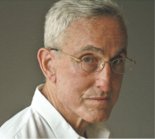
As far back as the sixth century B.C., physicians have looked to treat diabetes through diet. Today, it is estimated that over 30 million Americans have been diagnosed with this chronic disease and up to 9 million suffer undiagnosed. In RETHINKING DIABETES: What Science Reveals About Diet, Insulin, and Successful Treatments (Knopf, Nonfiction; January 2, 2024), Gary Taubes explores the history of diabetes research to look towards more effective treatment in the future. Delving into the history of diabetes research shows at times conflicting and contradictory medical advice. Taubes re-examines this research alongside the most recent studies to provide new insight that shows the current standard treatment is not enough. He argues for doctors to look beyond prescribing drugs to incorporate dietary and lifestyle changes as an essential part of treatment.
In his latest book, Taubes challenges conventional medical thinking to reveal the limits of medical science for diabetes treatment. The proposed changes in RETHINKING DIABETES could revolutionize how people live with diabetes and help the millions of Americans struggling for years to come.
30 April 2024, 6:32 am - EP 1,186 - News of the Week
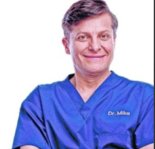
Dr. Roizen talks about the latest health headlines that YOU need to know.
- Updates on cardiovascular health and controlling blood pressure
- High stress from teenage years to adulthood ups your cardio-metabolic risks
- Weight loss and diabetes and the lowered risk of heart disease
- PLUS so much more...
2 April 2024, 8:22 am - EP 1,186B - FLUKE: Chance, Chaos, and Why Everything We do Matters
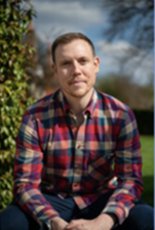
Have you seen the Gwyneth Paltrow movie, SLIDING DOORS? It features the inimitable Gwyneth, playing Helen, freshly fired from her corporate job, stumbling into a train station, still in shock. The movie parallels the life-altering consequences of Helen missing her train home.
Brian Klaas moves the “sliding doors” theory one step further in FLUKE: Chance, Chaos, and Why Everything We Do Matters (on sale Jan 23). In it, Klaas demonstrates how linear ideas of progress are (at best) outmoded and suggests that “embracing the unpredictable” is not only more realistic—but is ultimately the key to happiness. Using history, evolutionary biology and chaos theory, Klaas shows how “letting go” is not only better for mental health, it can also be an empowering tool for success. The core argument of the book is that our world—and our lives—are more swayed by the accidental than we imagine. As people accustomed to recognizing patterns, we often wrongly weave unrelated data points together into a more pleasing tapestry. That is that the “storybook reality” produced by our modern simplified computer models, which systematically search for “the signal” and delete “the noise.”
Recall that for Gwyneth, her life was altered less by losing her corporate job than missing her train afterward.
ABOUT THE BOOK:
If you could rewind life and redo one moment, would everything turn out the same? Or could catching a train or missing an exit change your life—or history itself? Would you even know what to change, being blind to the radically different worlds you unknowingly left behind?
In the perspective-altering tradition of Malcolm Gladwell’s Tipping Point and Nassim Taleb’s The Black Swan comes a provocative challenge to how we think our world works—and why small, chance events can divert our lives and change everything, by social scientist and Atlantic writer Brian Klaas.
In FLUKE: Chance, Chaos and Why Everything We Do Matters (on sale Jan 23rd, 2024), Klaas tackles these questions and changes the way we look at the world. Klaas encourages a shift away from our obsession with linear ideas about progress and suggests that embracing the unpredictable nature of life is not only a more reality-based outlook—but is the secret to happiness. For Klaas, all of our fates are inextricably linked to a web of people and events not only outside of our control, but not even within our purview whatsoever. Pull on one thread and it effects the whole web. It is these often random “flukes” that have outsized influence on our lives. Drawing on social science, chaos theory, history, evolutionary biology, and philosophy, FLUKE provides a brilliantly fresh look at why things happen and offers lessons on living smarter, being happier, and learning to let things go.
2 April 2024, 8:16 am - EP 1,185B - FOOTPRINTS OF SCHIZOPHRENIA: The Evolutionary Roots of Mental Illness
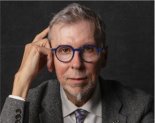
What causes schizophrenia? Is it a genetic glitch or are environmental factors at play? A combination of the two? Whatever the reason, what medication and course of action will give the patient the best chance at a normal life?
Of all the mental illnesses, schizophrenia eludes us the most. Despite the strides scientists have made in neurological research and doctors have made in psychiatric treatment, schizophrenia remains misunderstood, almost complacently mythologized. Without a reason for the illness, patients feel even more alienated than they already do, families are left hopeless, and doctors struggle to provide effective care.
After an almost forty-year medical career dedicated to caring for those affected by schizophrenia, Dr. Steven Lesk became determined to find the answer to its existence. In Footprints of Schizophrenia, he presents a groundbreaking theory that weaves evolutionary evidence with neurological findings. His conclusions promise to forever change the lives of the mentally ill by generating much-needed cultural dialogue about this stigmatized illness, and ultimately by provoking new psychiatric and pharmacological research.
Dr. Lesk’s “primitive organization theory” has its basis in human evolution—from Neanderthals to Homo sapiens—and the specific changes to our brains after the emergence of language. We’ve existed in human-like form for six million years, but we’ve only had language for 50,000; as Dr. Lesk explains, within the vast span of evolutionary time that’s hardly any time at all. He posits that the twenty million people in the world who have schizophrenia don’t suppress the hormone dopamine, which is affected by language, in the way evolution has trained us, so their brains don’t process language well, leaving them to function as if they’re in a hallucinatory, delusional dream state.
In addition to focusing treatment efforts for schizophrenia, Dr. Lesk’s theory could affect what we can do to help people with other dopamine-related illnesses like Alzheimer’s, Parkinson’s, Huntington’s chorea, Tourette’s, ADD, and more. Calling on such diverse fields as anthropology, language theory, neurochemistry, evolution, and even the second law of thermodynamics, Footprints of Schizophrenia offers hope to those with schizophrenia whose dopamine doesn’t flow in our new, adaptive way. It will usher in a new era of psychiatric understanding—one that the field and the public desperately need.
19 March 2024, 7:02 am - EP 1,184B - Menopause- OVARIAN CANCER & PELVIC MASS’

Did you know that each year, up to 1.5 million women are diagnosed with pelvic (adnexal) masses? While most of these masses are noncancerous, a pelvic mass diagnosis can lead to a significant decision: the potential removal of one or both ovaries, known as oophorectomy, which may result in surgical menopause. A pelvic mass is a growth or enlargement originating in or around the uterus, which can involve the ovaries, fallopian tubes, and neighboring tissues (adnexal masses).
Ovarian cancer, though relatively rare, impacts about 20,000 women annually in the United States. Early identification is crucial for positive outcomes.
The decision to proceed with surgery is not one to be taken lightly, as 6 out of 7 women who undergo ovarian removal due to pelvic masses do not have cancer.
Surgical menopause, particularly before natural menopause, can lead to immediate and long-term health implications, affecting bone health, neurological conditions, mental health, and heart health.To empower women facing these challenges, here are three proactive steps they can take:
- Assess Ovarian Cancer Risk:
- Understand personal ovarian cancer risk, considering factors like family history.
- Seek Informed Decisions:
- Request blood tests that provide valuable information for decision-making.
- Consult Healthcare Providers:
- Engage in meaningful discussions with doctors, weighing the risks and benefits of surgical approaches and exploring options to preserve ovaries.
What Women Need To Know About Ovarian Cancer -
According to The American Cancer Society, Ovarian cancer ranks fifth in cancer deaths among women and is the deadliest of all gynecologic cancers. It accounts for more deaths than any other cancer of the female reproductive system. Ovarian cancer is often called the "silent killer" because symptoms may be subtle, but they can include bloating, pelvic or abdominal pain, difficulty eating, and frequent urination.
Estimates for ovarian cancer in the United States for 2023: about 19,710 women will receive a new diagnosis of ovarian cancer and about 13,270 women will die from ovarian cancer.
12 March 2024, 8:08 am - Assess Ovarian Cancer Risk:
- EP 1,184 - News of the Week
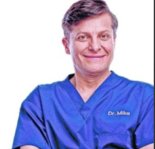
Dr. Roizen talks about the latest health headlines that YOU need to know.
- Menstrual cycle disorders and their ties to other health issues
- Gradual weight loss is best to help achieve ideal weight
- Brushing teeth lowers risk for hospital acquired pneumonia
- PLUS so much more...
12 March 2024, 7:15 am - EP 1,183B - HOW NOT TO AGE: The Scientific Approach to Getting Healthier as you Get Older
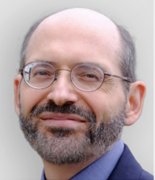
When Dr. Michael Greger, founder of NutritionFacts.org, dove into the top peer-reviewed anti-aging medical research, he realized that diet could regulate every one of the most promising strategies for combating the effects of aging. We don’t need Big Pharma to keep us feeling young—we already have the tools. In How Not to Age, the internationally renowned physician and nutritionist breaks down the science of aging and chronic illness and explains how to help avoid the diseases most commonly encountered in our journeys through life.
Physicians have long treated aging as a malady, but getting older does not have to mean getting sicker. There are eleven pathways for aging in our bodies’ cells and we can disrupt each of them. Processes like autophagy, the upcycling of unusable junk, can be boosted with spermidine, a compound found in tempeh, mushrooms, and wheat germ. Senescent “zombie” cells that spew inflammation and are linked to many age-related diseases may be cleared in part with quercetin-rich foods like onions, apples, and kale. And we can combat effects of aging without breaking the bank. Why spend a small fortune on vitamin C and nicotinamide facial serums when you can make your own for up to 2,000 times cheaper?
Inspired by the dietary and lifestyle patterns of centenarians and residents of “blue zone” regions where people live the longest, Dr. Greger presents simple, accessible, and evidence-based methods to preserve the body functions that keep you feeling youthful, both physically and mentally. Brimming with expertise and actionable takeaways, How Not to Age lays out practical strategies for achieving ultimate longevity.
5 March 2024, 7:51 am - More Episodes? Get the App
Your feedback is valuable to us. Should you encounter any bugs, glitches, lack of functionality or other problems, please email us on [email protected] or join Moon.FM Telegram Group where you can talk directly to the dev team who are happy to answer any queries.
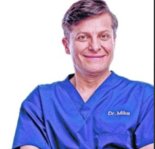
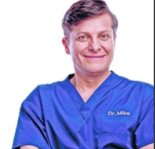
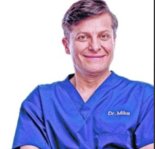
 The Art Of Living with Kathy Smith
The Art Of Living with Kathy Smith
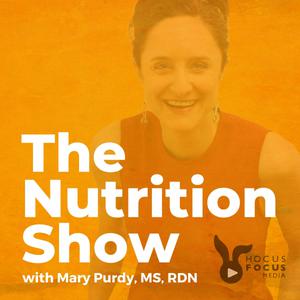 The Nutrition Show
The Nutrition Show
 Cleveland Clinic Health Essentials Podcast
Cleveland Clinic Health Essentials Podcast
 RadioMD (All Shows)
RadioMD (All Shows)
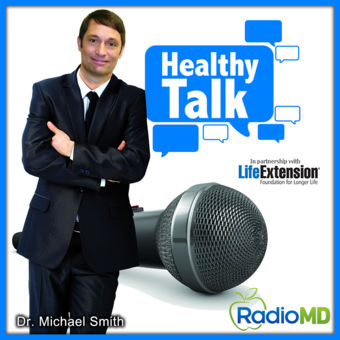 Healthy Talk
Healthy Talk